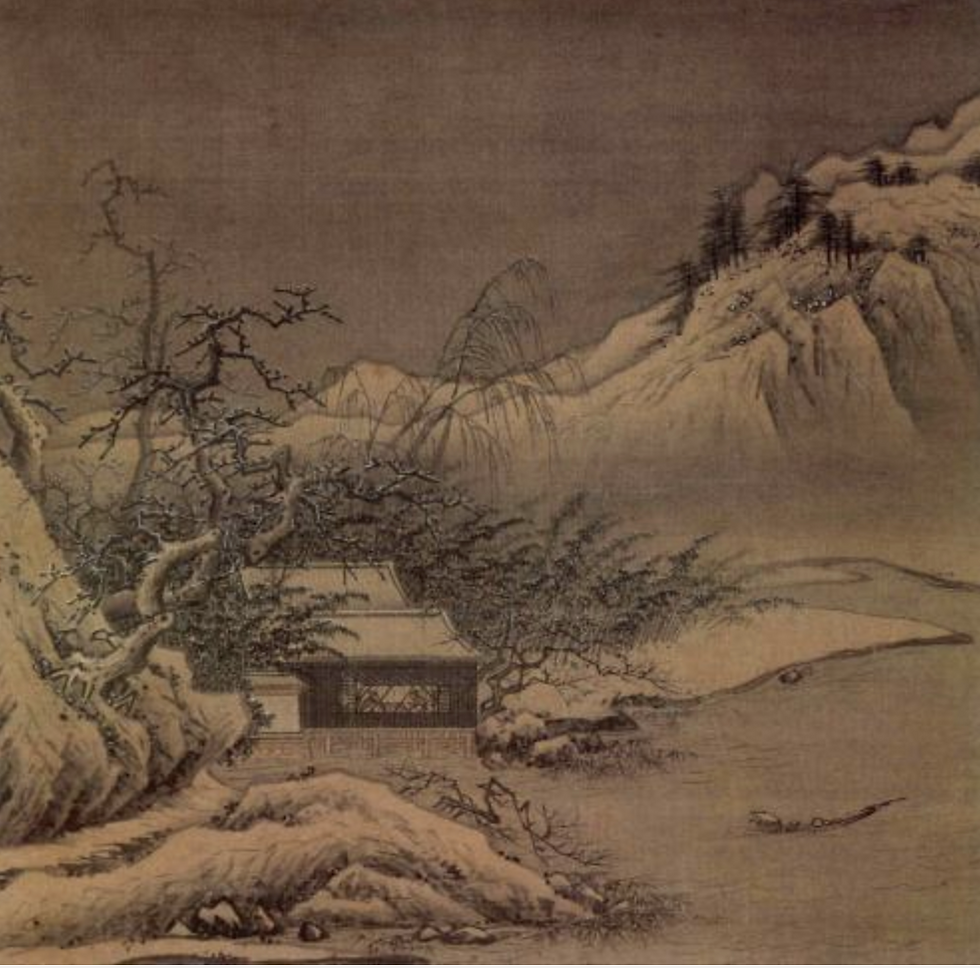八声甘州.寄参寥子 Fairwell to my Friend Canliao
- Julia Min
- Feb 17, 2024
- 4 min read
Updated: Feb 25, 2024
八声甘州.寄参寥子
原作: 苏轼(字子瞻, 号东坡居士; 11世纪北宋)
英译: 闵晓红(2024.02)
有情风万里卷潮来,
无情送潮归。
问钱塘江上,西兴浦口,
几度斜晖?
不用思量古今,
俯仰昔人非。
谁似东坡老,
白首忘机。
记起西湖西畔,
正暮山好处,空翠烟霏。
算诗人相得,
如我与君稀。
约它年、东还海道,
愿谢公、雅志莫相违。
西州路,不应回首,
为我沾衣。
Fairwell to my Friend Canliao
- to the tune of “The Eight-Line Ganzhou”
Chinese original: Su Shi (11th AC, social name 'Dongpo')
English translation: Julia Min (Feb. 2024)
The Wind arrives with delight,
Racing the roaring waves from ocean wide.
With regret he departs,
Taking back to sea heart the receding tides.
I recall our good times at Xixin Port,
watching sunset clouds of Qiantang River mouth.
Even for the greatest men of all times,
A lifetime is just a twinkling of an eye.
Yet Dongpo was slow, didn’t know to let go,
Not till this late, not till this old.
In poetry our friendship took roots, blossoming.
Such a precious life gift. Such a blessing.
We both love west hills of West Lake in light mist,
To see sunrays streaming through budding leaves.
Life is a humorous seesaw ride.
Who knows to where tomorrow leads?
I shall return on the waves of Yangtze River, -
A deal sealed like Lord Xie’s to retire in the east.
Please let it be if things ran against our desire.
Even at Xizhou Gate, don’t cry for the old me.
Notes:
1. Canliao: the social name of the monk Daoqian, a lifelong friend of Dongpo; He was exceptionally good at Buddist scriptures and also at poetry. He followed Su Shi to Huangzhou, helping his best friend going through the first banishment period. They were like soul mates, appreciating each other for the Buddhist insight into the nature of life and the profound enjoyment in poetry.
2. Xixin Port: a place south of the Qiantang River near the river mouth; Today it is Xilin community in Hangzhou; It must be a favoured place where Dongpo and Canliao visited often for the panoramic view of the beautiful sunset over the tides of Qiantang River mouth.
3. Qiantang River mouth: famous still today for its majestic view of the roaring tides swallowing the river as it feeds into the sea. It has been depicted in many artistic works throughout Chinese history.
4. Lord Xie: (320-385 AC) a famous politician of the Jin Dynasty; According to The History of the Jin Dynasty - A Biography of Xie’an, he was offered high posts in the Court, but didn’t accept them as he was determined to lead a secluded life in east China, namely, East Hill, Kuaiji (today’s Shaoxin, Zhejiang Province), where the Chinese phrases “东山之志“,“东山再起” are sourced from. It was not until the Throne got annoyed and punished his family that he finally took the role of Sima (similar to today’s Prime Minister) and achieved huge success. Although he was cherished and respected in the Court, he never gave up his will of returning to his East Hill. He had become an iconic legendary figure for the gentlemen society in later dynasties for living a detached lifestyle as against a chaotic life in pursuit of fame. The Jin dynasty is also well-known for the elegant manners and good eloquence of the gentry class.
5. Xizhou Gate: a city gate (located in today’s Nanjing City); According to The History of the Jin Dynasty - A Biography of Xie’an, Xie’an had a nephew whom he loved dearly. The young man couldn’t bear the sight of Xizhou Gate that saw the death of his beloved uncle. He would avoid going anywhere near it as he couldn’t hold tears from running down his chest.
Appreciation:
It was 1091 that saw the birth of this fantastic farewell poem. Dongpo was promoted again from the Governor of Hangzhou to the Head of Hanlin Academy (or Imperial Academy), a post like the Secretary General to the Emperor, usually regarded then as an important role like the Deputy to the Prime Minister.
This poem is intense in the theme yet very simple in the wording. It seems that it’s so structured that it can outstand other farewell poems no matter how much the readership could capture under the line as it allows multi-layers of understanding. Usually we are advised to start composing a poem by gently ushering the readers in by introducing something ordinary, familiar or easy to the eye, leaving the theme to the last couplet. It requires profound mastering of the art to start strong as in this one. Our poet Dongpo strikes his theme right in the beginning, emphasizing his deep feelings towards this friendship and a philosophical insight into the evolving nature of universal rules. Very powerful momentum is felt there on the horizontal spectacle, and then on the vertical line of history. The scene echoes with the sentiments, well blended to emphasize how much he appreciated their beautiful memories of their detached life moments in embracing the wonders of nature, and their great times together seeking spiritual enlightenment.
There are two main natural features carefully chosen to enhance the theme. First, the well-known and most powerful tides at Qiantang River mouth which stand for the inevitable passing of time, a regret all humans share about life. The second is the glorious sunset and the sunbeams flickering through budding green by West Lake, a golden yellow shower over the misty hills. Some say the colour of friendship is golden yellow. Here, a blessed bond of two life friends shines like the many shades of the golden yellow colour that embodies passion, hope, intuition, wisdom, and tangible glory like the sun. It’s also the favourite colour of the great artist Van Gogh who once said: “How wonderful yellow is. It stands for the sun.” He used it to express his cosy memories of the precious time with the girl he loved.
Reference:
《百度百科》
picture from《大纪元》





Comments